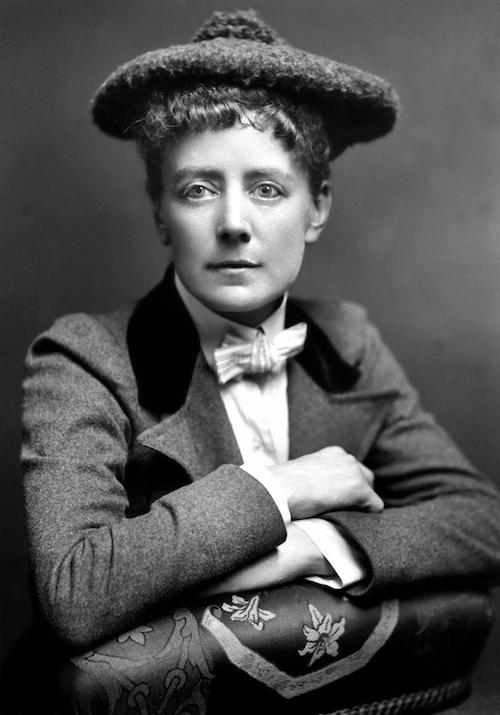Ethel Smyth’s soaring Mass a standout in Cathedral Choral Society’s program of women composers

Selections from Dame Ethel Smyth’s Mass in D major were performed by the Cathedral Choral Society Sunday at Washington National Cathedral.
In March of 2020, Cathedral Choral Society had planned to mark the centenary of the passing of the Nineteenth Amendment, expanding the right to vote to American women. Two years after the coronavirus pandemic upended that plan, Steven Fox conducted this intriguing program, including three world premieres, at Washington National Cathedral Sunday afternoon. Aptly the amassed ensemble performed music composed exclusively by women.
The oldest work selected, Fanny Mendelssohn’s splendid Overture in C Major, opened the concert. The slow first section sat serenely over pedal tones begun by the French horn. The echo-prone acoustic of the building’s nave, ideally suited to other kinds of music, muddied the fast section. High woodwinds and a theme given to the cello section almost vanished from soft textures.
Organist Renée Anne Louprette played the “Prélude” from Nadia Boulanger’s Trois pièces pour orgue ou harmonium. The accompanying figures, mostly murmuring parallel thirds, did not have enough time to land clearly in the space, but Louprette handled the dynamic shaping admirably with clean registration shifts. In the final section, lush harmonies shone warmly, with F minor shaded with modal ambiguity. The final statement, set in F major, hovered seraphically.
For the text of Voters’ Litany, which received its world premiere, Lisa Bielawa drew on Sheryl Oring’s participatory art project I Wish to Say. As also carried out at intermission, actors dressed in 1960s attire took dictations from anyone who wanted to contribute, typing them out on vintage typewriters as messages to a current or future U.S. president. This may have been an interesting art concept, but in practice it yielded repetitive banalities for the composer to have to set.
The opening of timpani and organ, reinforced by dissonant chords in the orchestra, gave a solemn backdrop to the iteration of greetings and requests from anonymous citizens. As the intensity ramped up over a long crescendo, individual words were lost in the sonic maelstrom while a man clacking away on a typewriter added to the chaotic fervor of democracy at work. The piece coalesced unconvincingly into homophonic choral questions and parting thoughts.
Jessie Montgomery’s I Have Something to Say, also in its world premiere, tried to do more but also fell short. The wide-ranging text by Robbie McCauley (the composer’s mother, who passed away last year) brings together the activism of Sojourner Truth and Greta Thunberg, the latter voiced sweetly by the boys and girls of the Washington National Cathedral Choristers. A bizarre opening section consisted of unexplained noise generated by the chorus shifting on the risers.
This piece also fell into a rather obvious depiction of the tumult of democracy, as some lines were shouted over one another during the slow swell of sound. After some earnest but plain choral statements of the final lines, about women carrying on the struggle, the piece reached for a big finish with a flourish of brass and metallic percussion.
The most successful world premiere on the program was Augusta Read Thomas’s Far Past War, set to a two-part poem by Cammy Thomas, the composer’s sister. Read Thomas used the forces on hand, a large orchestra and chorus, more effectively, opening with a heraldic fanfare in the brass. The chorus built up vast, yearning clusters of sound, shadowed by the strings and interwoven with brass and bells. Surprising harmonic shifts, often begun by destabilizing notes in the low brass, added an aura of mystery.
Fox conducted all three of these relatively brief new works with admirable care, marshaling his ensemble in the Thomas work to a triumphant climax on the words “drop far past war.” Soft echos on the words “take us take us too,” answered by a dulcet violin solo, offered a prayer on behalf of all people.
None of the new works held a candle to the three movements from Ethel Smyth’s magnificent Mass in D Major, billed in the program as the first performance of this 1893 work in Washington. With the same musical resources as the new works, Smyth created textures of striking variety and depth, without any compositional or textual gimmicks. Kristen Dubenion-Smith plied her rich, warm mezzo-soprano voice to the “Sanctus” movement, an angelic intonation answered first by the treble voices, in radiant voice, and then full chorus and orchestra in the victorious “Hosanna.”
Powerhouse soprano Amanda Palmeiro, who made a great impression on the local scene in 2019, filled the nave with a pleading, plush sound in the “Benedictus” movement. The intimate side of her voice purred in the opening section, her intonation and attack always precise. Her resplendent B-flat and other top notes rang out with exemplary force in the “Hosanna” section, soaring even over the broad sound of the full orchestra and chorus.
Tenor Issachah Savage, on our radar since his student days at the Catholic University of America, brought a sobbing, heroic tone and impeccable breath support to the “Agnus Dei” movement. After this heart-felt solo imprecation, the chorus took over the movement with its own impassioned plea, the sort of large choral texture at which CCS excels. The concluding “Dona nobis pacem” featured more of Savage’s glowing high notes, shaking the heart, and tender responses from the chorus.
It seems incredible that Smyth’s greatest work has not been heard before in Washington, where big choruses are found around every corner. Any conductors planning yet another performance of the Verdi Requiem should consider it instead. The same cannot be said for the final work on the program, Smyth’s four-square March of the Women. Smyth wrote it the year that she joined the Women’s Social and Political Union, but unlike the Mass it seems a relic of its time.


